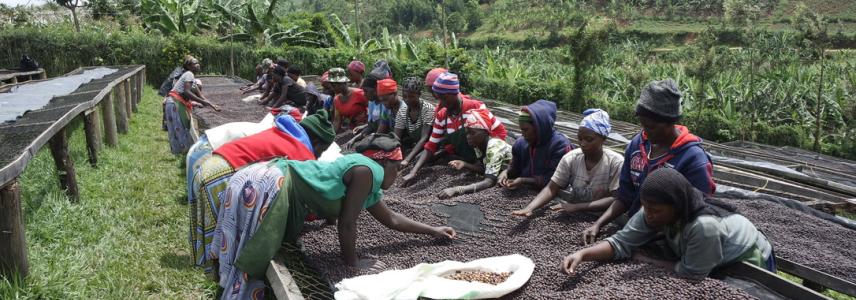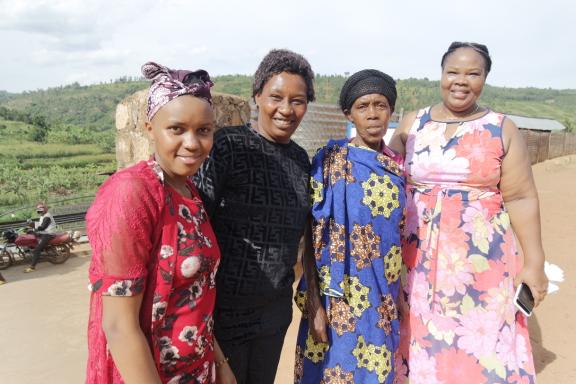Promoting equal rights for men and women in the Rwandan coffee sector

In Rwanda, around 400,000 small-scale coffee farmers grow coffee beans. Many women work in the coffee sector but often have lower-paid jobs and fewer opportunities. To develop a high-value, sustainable speciality coffee sector in Rwanda, CBI's Speciality Coffee Rwanda project promoted gender equality.
To address gender equality, CBI asked 2 local gender consultants for help: Agnes Uwera Bazimya and Espérance Mukarugwiza. So, how did they approach this project?
A strategic action plan
Agnes begins, "We started by visiting 13 coffee companies in Rwanda. We talked to everyone, from farmers and casual workers to the company's management. We then created a strategy and action plan for each company for the next 3 years. CBI supported us, allowing us to give company training sessions. We focused on 4 main topics: equal rights for women, women entrepreneurship, women-produced coffee and childcare facilities."
Promoting equal rights
"The law in Rwanda states that a husband and wife both have 50% ownership of land. But in reality, the man controls the farm and the money. We talked to the communities to help them understand why men and women should have the same rights. The community leaders supported us as, when women have the same rights as men, it benefits the community and the families. Women who own land and coffee trees can get loans and premiums on top of the usual price they get for coffee beans. More money means more children will go to school and get better quality food."
More opportunities for women

At the coffee companies they visited, Agnes and Espérance saw big differences between men and women. Espérance explains, "Women mostly do the lowest-paid jobs. Many of them work at coffee washing stations. Mostly men do heavy manual work, sorting and buying coffee beans or managing the companies. Women are often not accepted for these positions. But there are a few exceptions. One is Nova Coffee, a business owned and run by women."
During this CBI project, Agnes and Espérance helped create more opportunities for women. As a result, at the Dukunde Kawa company, the number of women coffee suppliers increased from 455 to 1517 in 2020. And, at Nyamurinda Coffee, there are now more women involved in coffee quality processing than men. Espérance continues, "Most companies are open to change once they see that women can do the same kind of work as men, and they see their business growing. We also helped find more work for women casual workers outside the coffee season. Some now have chickens, cows or goats. Others have started making handicrafts."
Providing childcare facilities
Agnes and Espérance also addressed the lack of childcare facilities. Agnes explains, "Women workers have challenges with their families. Some need to stay at home when their children are very young. Or they bring them to the coffee washing stations, where there are health risks. The children sometimes eat coffee beans that can have worms inside. Such a situation can be prevented. To address this, we promoted providing childcare and breastfeeding facilities at work." Several of the companies have now started providing these facilities.
Marketing coffee produced by women

Espérance adds, "The main challenge is that the companies rely on their own money and donors to provide facilities for the workers. One way they can raise more money is by marketing coffee produced by women. This is a niche market that may appeal to international coffee buyers." Nova Coffee has created a brand called Café des Mamas for coffee beans produced by mothers. The company already has a client from Australia interested in this product.
Positive results
Agnes concludes, "Overall, the people were very positive and started using our ideas and strategies. I am also proud to see the engagement in the community. Still, it is difficult to change people's mindsets within a short amount of time. Sometimes, gender roles are part of norms and values related to culture and religion. People need more time to really accept the new roles in our society."
Stay informed
To stay informed on the latest CBI developments, subscribe to our newsletter. Or join one of our upcoming webinars.